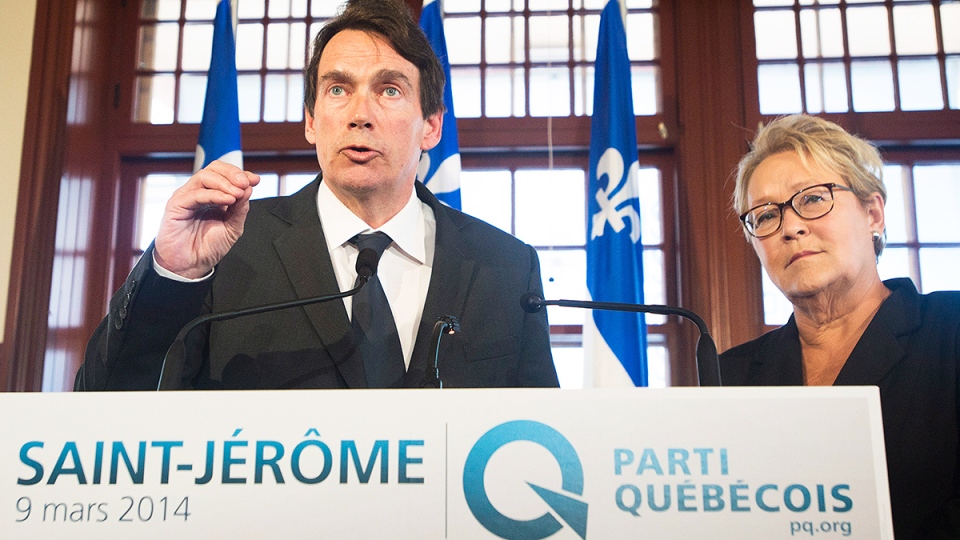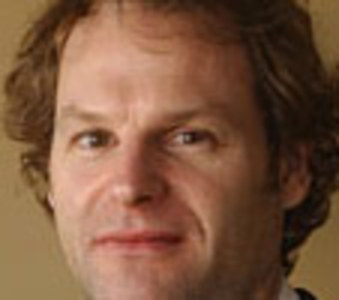Pierre Karl Péladeau’s emergence as a superstar Parti Québécois candidate represents a seismic shock for not only Quebec politics. The millionaire media mogul’s decision to actively promote sovereignty threatens to rock Stephen Harper’s government and possibly the entire country.
As political bombshells go, Mr. Péladeau’s announcement on Sunday that he will be a PQ candidate in the April 7 Quebec election is on par with Lucien Bouchard’s 1990 decision to quit Brian Mulroney’s government and go on to head the separatist Bloc Québécois, or Lester Pearson’s 1965 recruitment of three prominent Quebeckers – including Pierre Trudeau – to boost federalist fortunes in the province. It will certainly change Quebec. It could just as easily change Canada.
“Pierre Karl could be the Lucien Bouchard of the next Quebec referendum,” explained a leading Quebec federalist who worries that Mr. Péladeau’s high profile as a celebrity, and credibility as a successful businessman, would be more than a match for the deeply unpopular Mr. Harper on the campaign trail. In 1995, the charismatic Mr. Bouchard became the de facto leader of the Yes side, overshadowing then-PQ premier Jacques Parizeau and nearly pushing sovereigntists over the top in that year’s referendum.
For Mr. Mulroney, the architect of the failed Meech Lake constitutional accord that aimed to quash the sovereigntist movement by recognizing Quebec as a distinct society, it marks the second time that a key protégé has joined the separatist cause. The former prime minister has mentored Mr. Péladeau almost since the latter took the reins at Quebecor after the death of his father, Pierre Péladeau, in 1997.
“He’s resigned [from Quebecor’s board] and gone off to run in politics,” Mr. Mulroney, who remains vice-chairman of Quebecor, offered in an interview on Sunday. “He’s on his own. There is a total segregation between Mr. Péladeau’s decision and the running of Quebecor.”
The 52-year-old Mr. Péladeau’s conversion to the sovereigntist cause has been years in the making. His father flirted with separatism, but the son considered politics beneath him and kept his distance from it until recently. A philosophy major, he studied in France and that country has served as his reference in most political matters. He also lived in Paris while running Quebecor’s European printing business in the 1990s.
“I don’t think it’s my role to comment on politics. It’s not even of interest to me. I run a global company,” Mr. Péladeau told The Globe and Mail in 2000. “I don’t care what’s happening in Quebec or Canada.”
Mr. Péladeau made those comments during Quebecor’s takeover of cable operator Groupe Vidéotron in a massive deal backstopped by the powerful Caisse de dépôt et placement du Québec. The move marked a strategic shift for Quebecor. It suddenly refocused on its home province, after buying the English-language Sun newspaper chain and turning Quebecor World into the globe’s largest commercial printer.
Indeed, except for the Sun chain and its sister news channel, Quebecor’s business activities are now entirely concentrated in Quebec. (Vidéotron recently purchased mobile spectrum in Ontario and Western Canada, however, signalling a potential expansion.)
Still, since Quebecor World went bankrupt several years ago, Quebecor has lost its global reach. The unravelling of the printing business in 2008 had a profound impact on Mr. Péladeau, and marked his souring on the Canadian business establishment. Royal Bank of Canada led a syndicate of banks that refused to refinance Quebecor World’s debt.
“He felt English Canada rejected him,” said a source familiar with the negotiations between Quebecor and Royal Bank.
Mr. Péladeau’s 15-year relationship with Quebec television host and producer Julie Snyder – with whom he formed a celebrity power couple in the province – also influenced his politics. Quebecor’s TVA network dominates Quebec popular culture and Ms. Snyder has been behind its biggest hits.
“When you hang around in Quebec cultural circles, as Pierre Karl did for years with Julie, you automatically find yourself surrounded by separatists,” a former associate said.
Mr. Péladeau only got to know PQ Premier Pauline Marois after she won a minority government in 2012 . She tapped him to chair the board of Hydro-Québec, the iconic Crown corporation that nationalized the electricity industry in the 1960s under the “Maîtres chez nous” slogan.
“Ideologically, Pierre Karl is a lot closer to Harper than to Marois,” said the federalist source. “He’s just decided that his political future lies in working with the separatists. He can help the PQ a lot.”
In 1965, Mr. Trudeau arrived in Ottawa as one of the “trois colombes,” or three doves. But Mr. Péladeau is a hawk in business. The ROC should expect him to act the same way in politics.
How Péladeau’s PQ bombshell will lead to aftershocks in Ottawa































Laissez un commentaire Votre adresse courriel ne sera pas publiée.
Veuillez vous connecter afin de laisser un commentaire.
Aucun commentaire trouvé